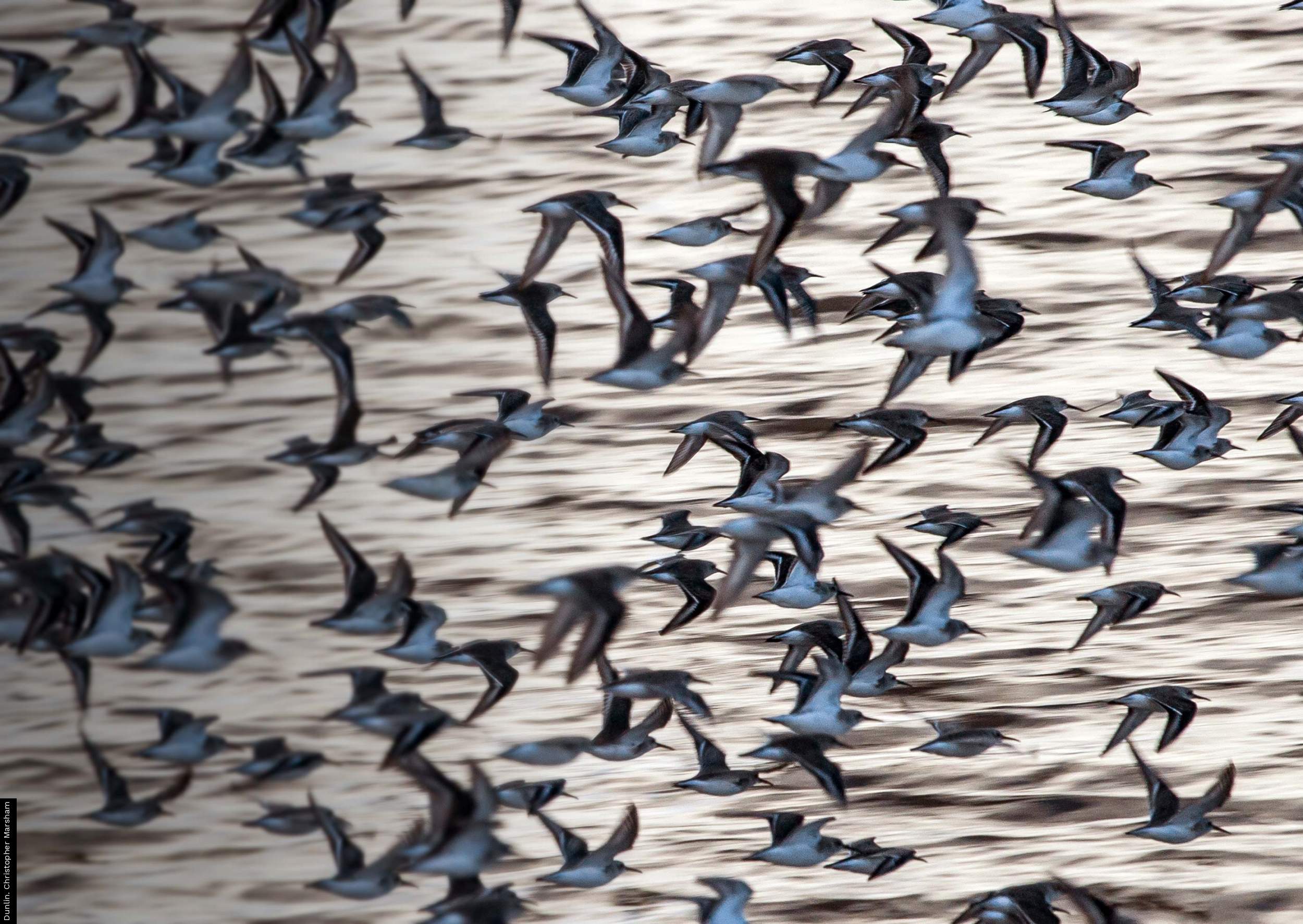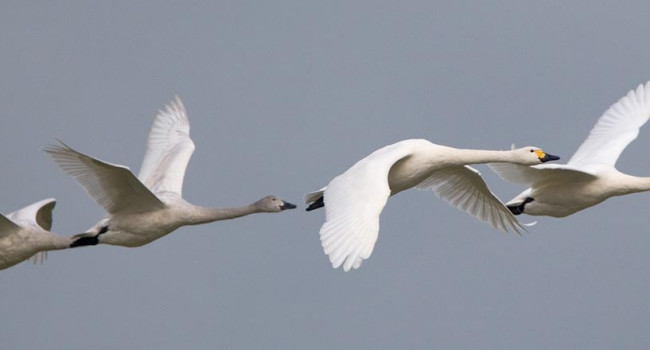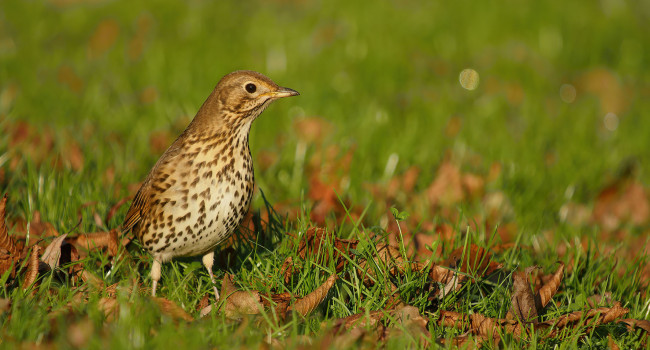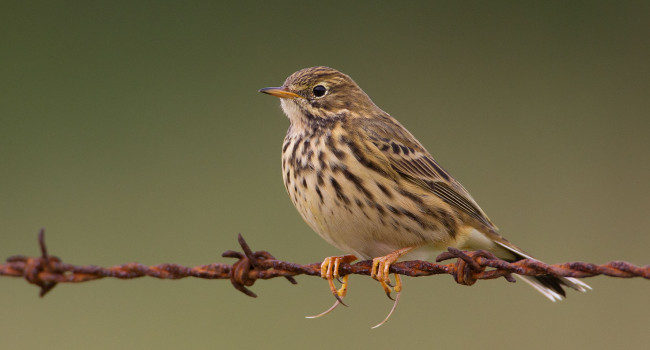And they’re off! 2023’s Cuckoos are tagged and ready to go
07 Jun 2023 | No. 2023-18
The British Trust for Ornithology (BTO) has fitted 10 more Cuckoos with state-of-the-art satellite tags, allowing scientists and the general public to track their annual migration to central Africa and back.
The UK has lost more than a third of its Cuckoos in the past 25 years but the full reasons why are still unclear. Following these birds on migration will help researchers understand the pressures they face.
Irish Cuckoos have been included in the project this year for the first time, as part of a collaboration between BTO and Ireland’s National Parks & Wildlife Service. Ireland’s Cuckoo population has declined by 27% since the early 1980s.
Since it began in 2011, the BTO Cuckoo Tracking Project has tagged more than 100 Cuckoos. Its work has revealed that English Cuckoos migrate more often via routes associated with higher mortality than Scottish Cuckoos do. This is the first year that the project has tagged Cuckoos in Ireland, which will reveal for the first time the routes that these birds take.
The differences in survival rates are linked to the conditions the birds encounter at the sites in southern Europe where they stop to refuel. The availability of large insect prey on their breeding grounds in the UK and Ireland may also impact their ability to successfully complete their migration south.
Four Cuckoos were tagged in Ireland: ‘Cuach Carran’ in Burren National Park in County Clare; and ‘Cuach Cores’, ‘Cuach Torc’, and ‘KP’ near Incheens in Killarney National Park, County Kerry. In England, ‘George' and 'Michael' were tagged at Loddon Common in the Norfolk Broads, ‘Jasper’ was tagged in King’s Forest, Suffolk and ‘Trent’ was tagged at Ryall, Worcestershire.
Researchers got a surprise at Knepp, Sussex, when they caught a bird they had tagged the previous year but who was presumed to have died. ‘Bluey’, as this bird was named, was fitted with a new tag alongside a new bird, ‘Sayaan’, bringing the total number of new tags deployed to 10.
Anyone can follow the BTO Cuckoos on migration by visiting www.bto.org/cuckoos.
The next stages of the birds’ lives are not for the faint-hearted. After heading out across the English Channel and south through Europe, the Cuckoos have a Mediterranean Sea crossing to contend with before they face the Sahara, the biggest challenge of them all. Most traverse the desert in a single non-stop flight, travelling at altitudes of up to 5 km to avoid the worst of the heat.
Every tagged Cuckoo provides us with invaluable data, improving our understanding of this extraordinary species and increasing the chances of developing effective conservation measures to reverse its fortunes.
Dr Chris Hewson, lead scientist on the project, said: “It’s fantastic to see 10 more Cuckoos heading off with satellite tags newly fitted. These birds will help us to better understand the pressures they face, the reasons for the population declines they are undergoing in large parts of the UK and how we can help them to successfully complete their arduous migrations in the rapidly changing world we share. It’s especially exciting to see birds from Ireland tagged for the first time - we’re looking forward to learning about the migrations of these Cuckoos from the western extremity of the species’ breeding range.”
Malcolm Noonan, Irish Minister of State for Heritage, said: “I am delighted that the National Parks & Wildlife Service has teamed up with BTO for this project. It will be very interesting to see the results over time. Last weekend we saw one of the birds move away from Killarney National Park towards Tipperary, and another shoot across the east Cork coast before double-backing to Limerick. It will be fantastic to get a full picture of the Cuckoos’ movements at home here in Ireland, when they migrate and, hopefully, when they return to our shores next year.”
Contact Details
Tom Stewart (BTO Media Manager)
Mobile: 07585 440910
Email: press [at] bto.org (subject: News%20release%20enquiry)
Mike Toms (Head of Communications)
Mobile 07850 500791
Email: press [at] bto.org (subject: News%20release%20enquiry)
Images are available for use alongside this News Release. These can be downloaded here with the password Cuckoos2023
Alternatively, please contact //press [at] bto.org" target="_blank">press [at] bto.org quoting reference 2023-18
Notes for editors
1 Cuach Carran, Cuach Cores and Cuach Torc were named after mountains close to where they were caught by the Irish National Parks & Wildlife Service, who funded their tags.
2 KP was named by Jenny and Tony Stanton. They funded his tag in memory of Jenny’s late father Ken, who ‘would have been fascinated by the satellite-tracking project’.
3 Trent was named by Severn Trent Water, which funded his tag.
4 Michael was named after the late Michael Holdsworth, a BTO member who ringed the bird at Wicken Fen, Cambridgeshire, in 2019. He played an invaluable role in the Spotted Flycatcher tagging project in Cambridgeshire between 2016 and 2019. The tag was funded by an anonymous donor.
5 George and Sayaan were named by Ann Masters (who funded their tags) after her new baby cousins.
6 Bluey’s new tag was funded by Diana Housley, Stuart Brown and Ian Duncan.
7 Jasper was named by Debbie and David Stratford in memory of friends they have lost to cancer and whose initials are included in Jasper’s name. His tag was funded by the Temple Tree foundation.
BTO began tagging Cuckoos in 2011 to learn more about their migration, which was previously poorly understood. By identifying the birds’ wintering areas and the places they use on migration, we can study pressures that may explain their decline in the UK. Read more here
BTO is the UK's leading bird research charity. A growing membership and up to 60,000 volunteer birdwatchers contribute to BTO's surveys, collecting information that underpins conservation action in the UK. BTO maintains a staff of 100 at its offices in Thetford, Stirling, Bangor (Wales) and Belfast (Northern Ireland), who analyse and publicise the results of surveys and projects. BTO's work is funded by BTO supporters, government, trusts, industry and conservation organisations. www.bto.org






Share this page